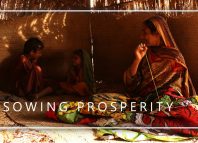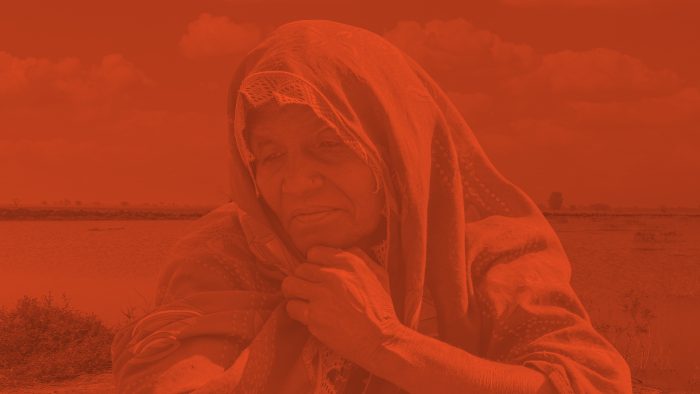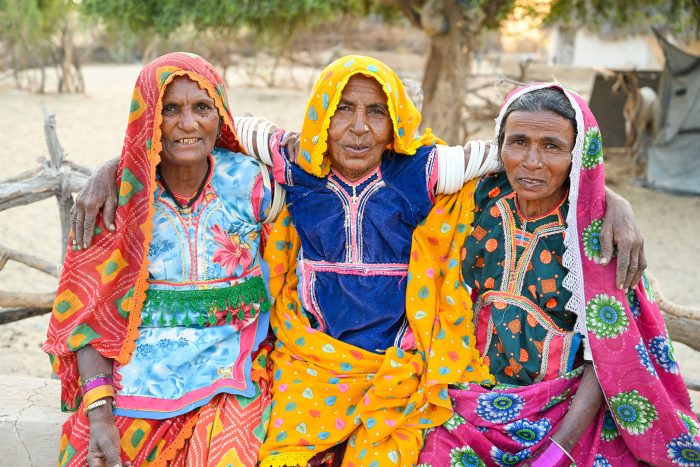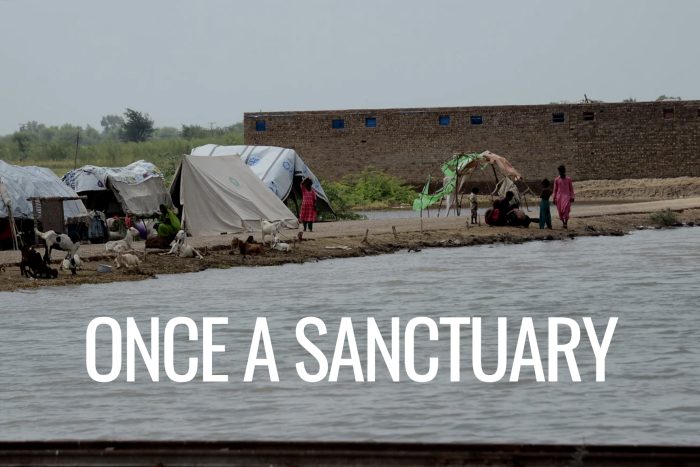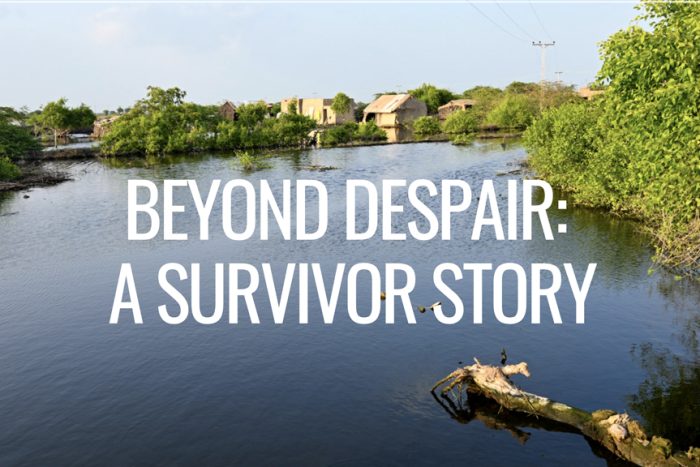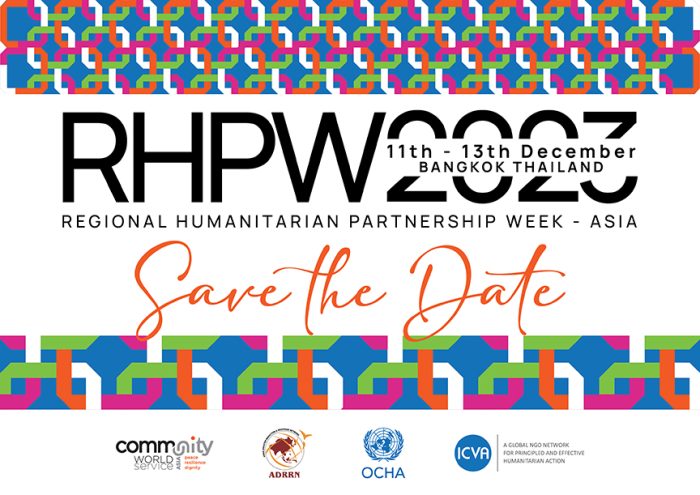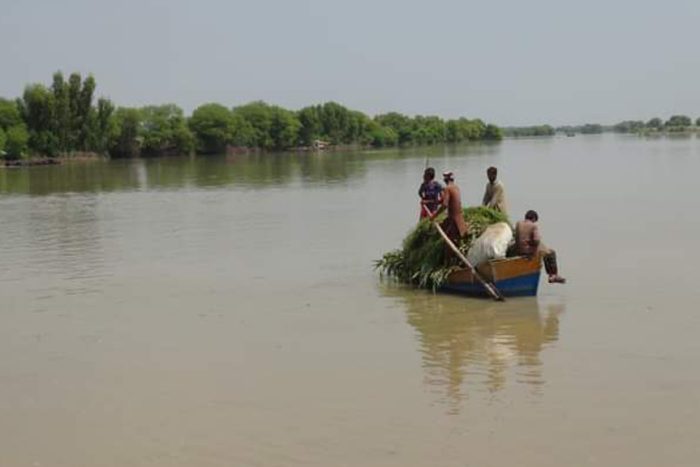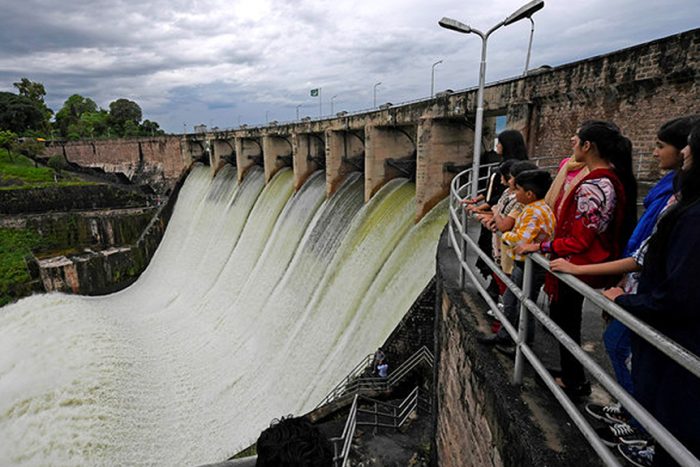A year on, Tooba Siddiqui, highlights how CWSA has worked towards mainstreaming quality, accountability and Safeguarding in flood response activities in Pakistan.
Yearly Archives: 2023
Moolo: man of the house
If the humanitarian food aid programme1 of CWSA favoured someone at just the right moment in their lives, it was old Moolo and his wife Babbri. In April 2022, shortly after this family had received the first aid package, Moolo had complained of failing eyes. But he and indeed others too thought it was only the usual age-related problem. Sadly, it was worse than that.
Back then, Moolo had suffered a setback because of the failure of the summer crop of 2021. The loan he and his son Chandan had got for agricultural input was lost and they were under debt. To make matters worse, in the absence of medication, Chandan’s epileptic fits got more frequent. But with food on loan, there was no cash for health care.
Then came the CWSA aid and with food taken care of, the old couple were able to provide the much needed daily dose of medication to their son. However, even as the young man’s health improved, old Moolo’s eyes deteriorated. With that, his speech was becoming increasingly unintelligible and his mind clearly slowing down.
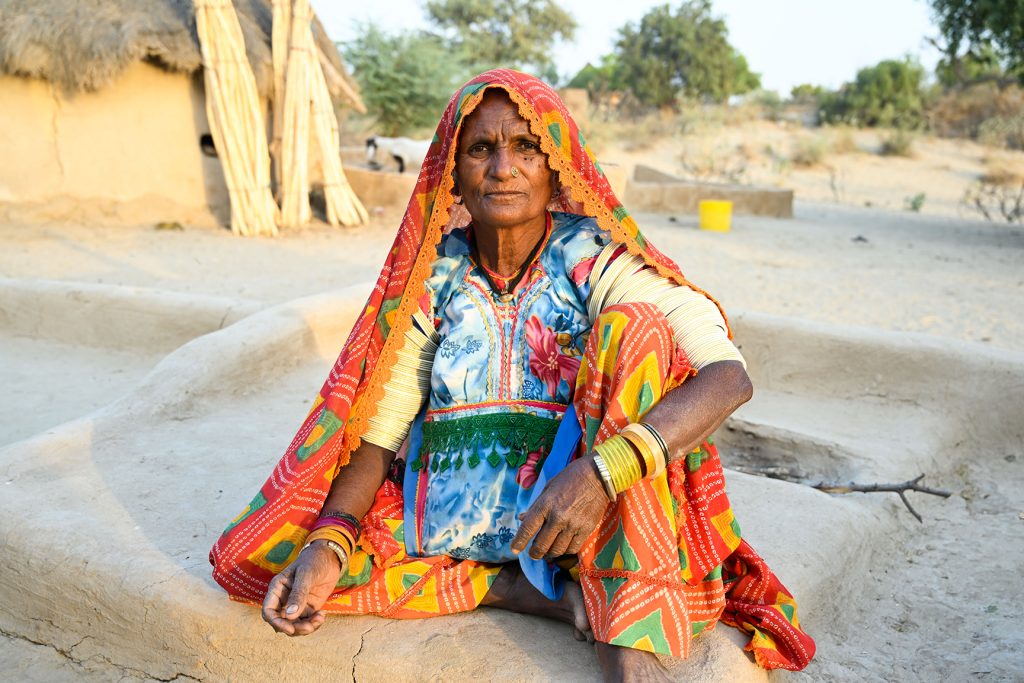
A difficult life of poverty and privation had taken its toll for though he was barely into his seventies, Moolo was completely spent.
The idea of the little store he and Babbri had planned to open from the saving they would make because of the food aid, began to recede into the distance. Why, how was Moolo, now unable to go about unaided, to manage the store? Ever more difficult, how was he to go into town unattended to purchase supplies needed to keep the store going?
His wife Babbri, though just a few years younger but much more spry, became the person of the hour. She went ahead with the opening of the store which was nothing more than a variety of children’s snacks, a few packets of condiments and the unfailingly ubiquitous packets of cigarettes.
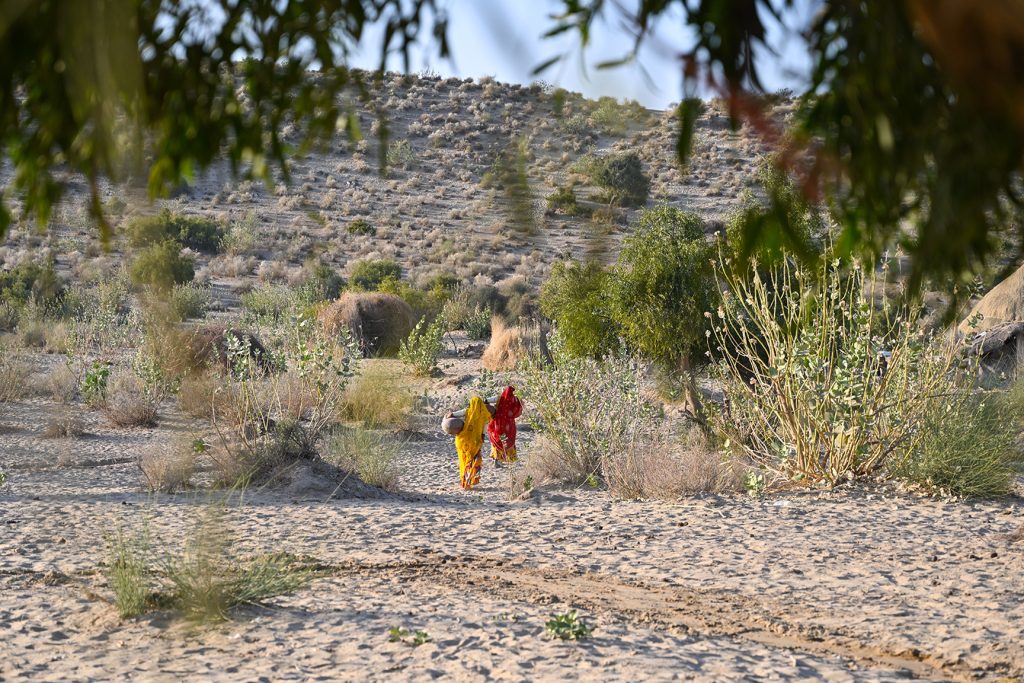
In early February 2023, just months after the last of the food packages had been received and consumed, Moolo was reduced to just a presence around the house: his eyes had finally given way and people around him were only unrecognisable shadows; only light and darkness were still clearly discernible. But the little store he had dreamed of was functioning out of the tin trunk and children of the village were frequently in and out of the compound picking up things against cash.
The question then was how was he managing the store with his disability? But before Moolo could respond, Babbri spoke up.
“He cannot do it now. I run the store and I net a daily profit of PKR 300 (Approx. USD 1),” she said. “Nobody gets credit from my store,” she added with a grin.
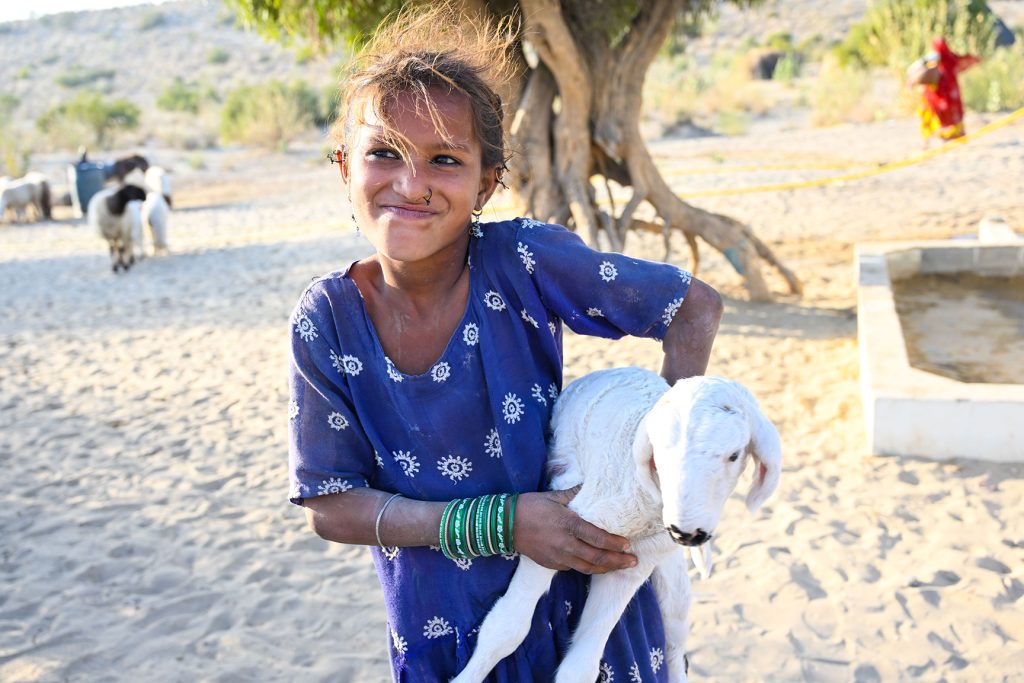
She related that the store was started shortly before the deluge of July 2022 with an investment of PKR 1000 (Approx. USD 3). In February, Babbri had stocks of PKR 3000 with PKR 4000 (Approx. USD 14) in hand to replenish her store. She was due to visit town with her cash to purchase supplies as she had been doing over the past seven months. And she was doing it all by herself. In effect, she was now the man of the house.
Asked how the food aid helped her and her family she was unequivocal: “It is because of this aid that we are not under debt. The little field we had planted as sharecroppers last summer, sprouted well enough. But with two straight months without a single day of sunshine and incessant rain, the crop withered. We were going to be without food and would have been forced to borrow money to keep body and soul together. Or we could have sold our goats to pay for food. But we are not under debt and we still have our goats!”
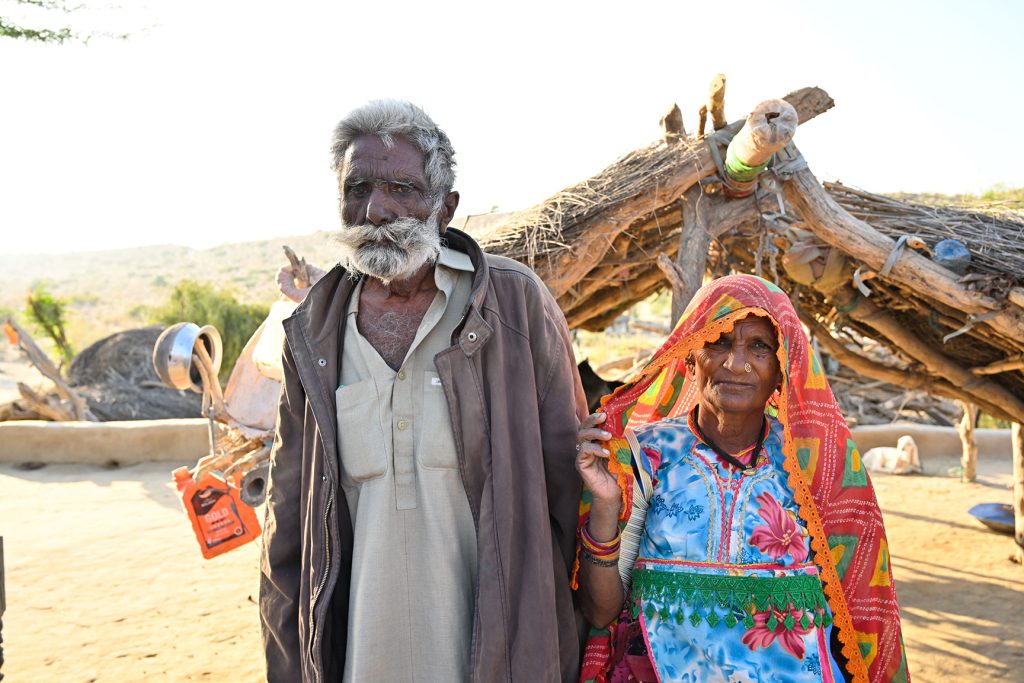
She related that three goats with three kids was a right little fortune in this Bheel village of poor folks. That means the family had their own milk for tea. And there was a time before 2022 when in years of poor harvest they would have only black tea.
The wheat harvest in ‘Sindh’, as the people of Thar differentiate the fertile canal-fed area from their rain-dependent desert, was drawing near, said Babbri. She and Moolo together with their two sons had migrated every March to participate in the harvest and returned with some 500 kilograms of wheat as their wages. This lasted them some four months until the millet and guar harvest was brought in.
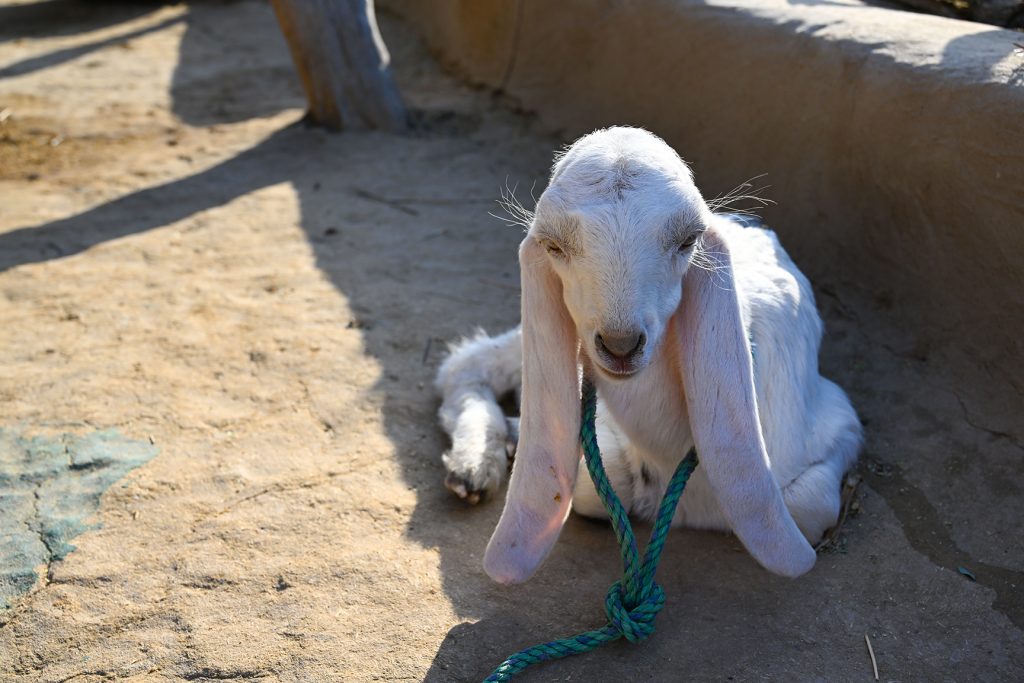
But with Moolo’s deteriorating eyes and Chandan’s epilepsy, only Babbri and her younger son participated in the harvest in 2022. Now because Babbri will be minding the store, the responsibility of bringing home the wheat rested upon Chandan and his wife. They would be leaving in early March to be away for four or five weeks. If they work hard enough and Chandan takes his medication on time, they will bring home 400 kilograms of grain. The younger son who works on road construction sites, will remain back so that his daily wages provide the much needed cash to Babbri and the invalid Moolo.
But if Babbri were to also migrate to participate in the wheat harvest, there would be more than the anticipated wages.
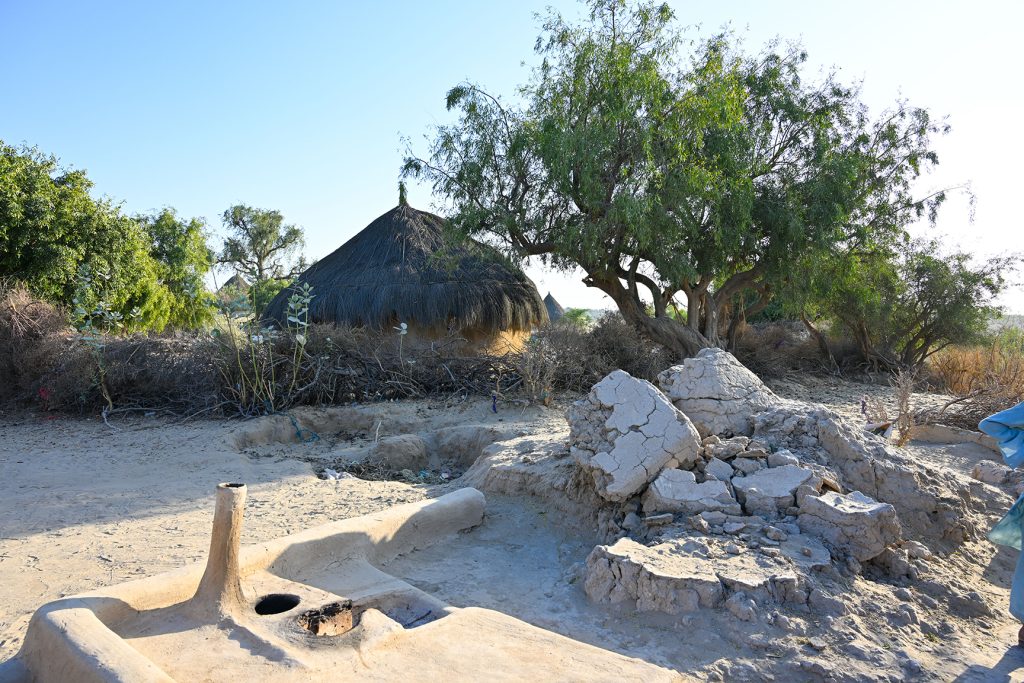
“I cannot leave Moolo alone in his condition,” said the spirited woman. “I have to cook for him and look after his other needs. And then who will tend to the shop and purchase supplies?”
Ever mindful of her responsibility, Babbri pointed out that Chandan will be sent away with six weeks’ worth of his epilepsy medication. And that would cost about PKR 1000. Before the food aid, Chandan had suffered and with him the whole family because there had never been enough cash to provide the daily dose.
As for the future, Babbri was very clear in her mind. “If I have some more money, I’ll invest it in our store. But for the time being I am very satisfied with the way it is going.”
- Humanitarian, Early Recovery and Development (HERD) program
Once A Sanctuary
One Year of Recovery: Remembering Flood Survivours & The Road Ahead
ACT Alliance has been one of CWSA’s key partners in humanitarian response in the region. Their support ensured aid to thousands of flood affected families in Pakistan in 2023. ACT staff was in the field this month to monitor relief and response activities supported by the Appeal with a special message on the first anniversary of the disaster.
One Year of Recovery: Remembering Flood Survivours & The Road Ahead
As we mark the one year anniversary of Pakistan’s devastating Floods of 2022, our Regional Director, highlights how affected populations have survived one of the century’s worst climatic disasters and the needs that still exist.
Beyond Despair: A survivor story
Floods uproot rural communities in Pakistan again
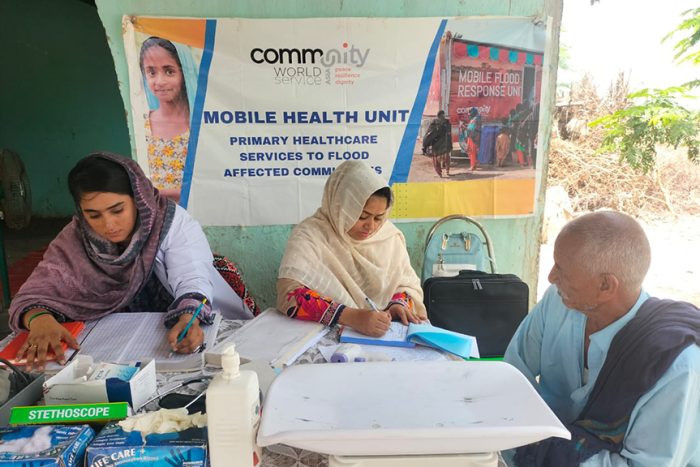
Latest monsoon rains in Pakistan have once again lead to widespread flooding, taking lives, damaging roads, and disrupting the lives of thousands of local communities that were already grappling with recovery from last year’s floods. The 2022 floods had a profound impact on a large population of Pakistan’s mostly rural community, affecting 33 million people across the country and claiming 1,739 lives1.
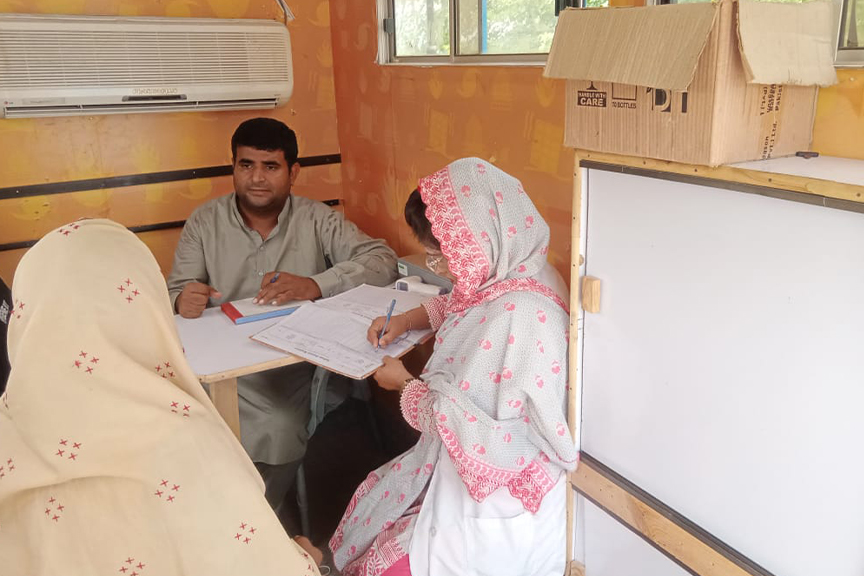
In initial response to the current floods, Community World Service Asia’s emergency team has conducted assessments in twenty-five villages, which were previously affected by last year’s floods, within the Khairpur district. This new wave of floods has again ravaged agricultural lands, livestock, and infrastructure of communities living in Taluka2 Sobhodero and Kingri.
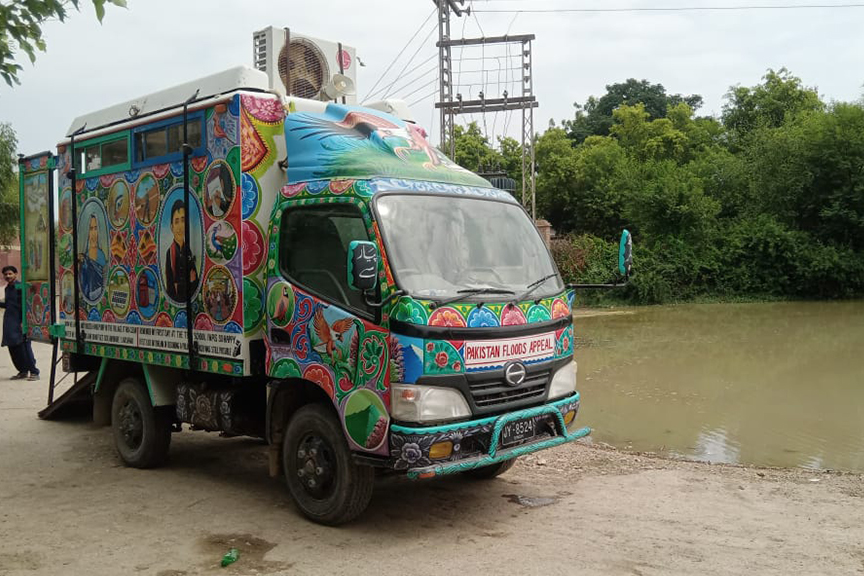
More than 5,600 people and a total of 1,149 households in the two talukas have been severely affected by the latest round of floods. Many affected families have sought refuge on higher grounds. Some women and children have decided to stay in their homes, with the men of the families venturing out in search of daily wages and essential supplies to ensure basic survival at this time of crisis. As connecting roads to this part of the district remain submerged, affected communities have again resorted to using boats to access main roads.
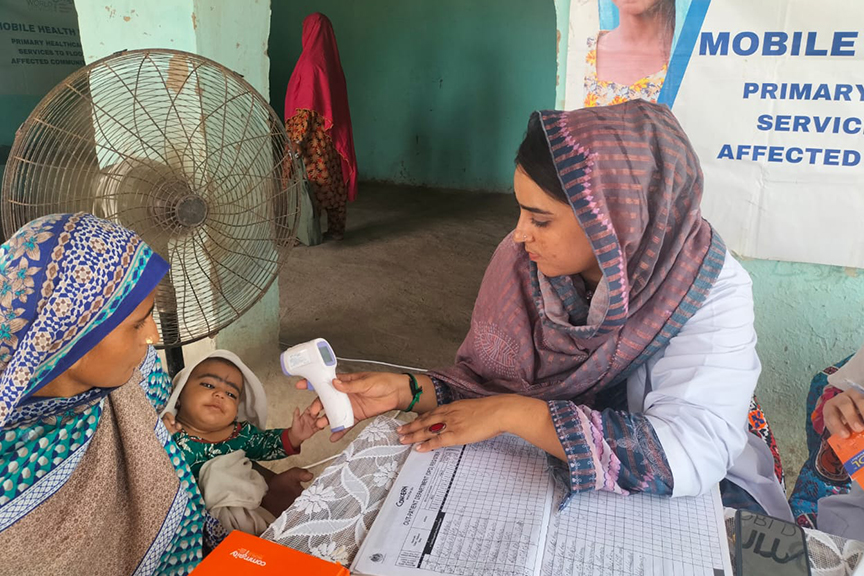
Community World Service Asia, with the support of its partners, has launched immediate humanitarian response activities to support affected communities in Taluka Sobhodero and Kingri. Through our response, we are providing essential health services through mobile health units, offering curative and preventive consultations, outpatient care, antenatal care, postnatal care, health counseling, and health awareness sessions. The awareness sessions focus on preventive diseases, maternal and neonatal healthcare, and hygiene. Affected communities are in urgent need of food, healthcare services, veterinary support for their livestock, and assistance with transportation through boats to meet their survival needs during this crisis.
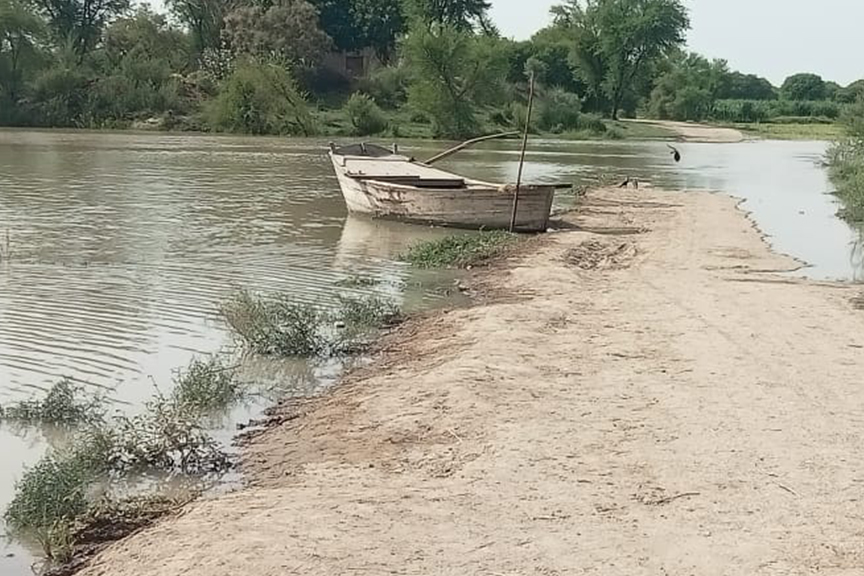
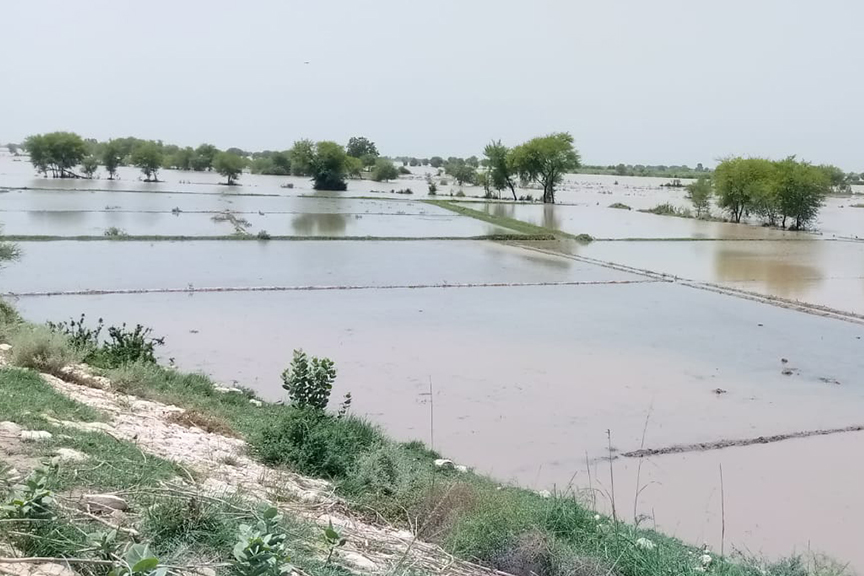
Note: Situation Update 1 on this emergency can be read here.
Contacts:
Shama Mall
Deputy Regional Director
Programs & Organisational Development
Email: shama.mall@communityworldservice.asia
Tele: +92-21-34390541-4
Palwashay Arbab
Head of Communication
Email: palwashay.arbab@communityworldservice.asia
Tele: +92-21-34390541
Sources:
www.ndma.gov.pk
www.arabnews.pk
https://pdma.gos.pk
https://reliefweb.int
www.nation.com.pk
1. National Disaster Management Authority (NDMA)
2. In Pakistan, a tehsil or (taluka) is an administrative sub-division of a District.
Regional Humanitarian Partnership Week Asia – 2023 – Save the Date
Heavy Rainfall triggers flooding in several areas in Sindh
Photo credit: CWSA staff in Khairpur, Sindh
According to the Flood Forecasting Division, the River Indus has experienced high flood levels at Guddu Barrage, with inflow ranging from 4,70,000 to 5,10,000 cusecs. Additionally, at Taunsa and Sukkur barrages1, Indus has been at a medium flood level.
This week’s monsoon rainfall in the upper catchment areas of the river has caused a surge in water levels at Guddu Barrage, with an inflow of 4,81,913 cusecs and an outflow of 4,61,563 cusecs.
In Ghotki2, a breach in the Zameendari Bund at Indus has resulted in the submergence of cotton, sugarcane and other crops and the disruption of land links for over ten villages, as shared by local sources. Another twenty villages in the Katcha area of Dadu district3 have also been flooded, leaving hundreds of acres of crops submerged. The situation has led people to move to safer areas on their own.
The Flood Forecasting Division predicts that River Indus will reach high flood levels at Guddu and Sukkur barrages within the next 12 to 24 hours, attributing the higher flows to rainfall in the river’s upper catchment areas. The upsurge in water level has also caused flooding in the katcha4 area of Pir Jo Goth and Gambat taluka in Khairpur district, leaving over seventy settlements stranded and at risk. Over 700 households of village Pandhi Mallah in district Khairpur have been left flooded after last night’s rains, with its people displaced and relocated to safe grounds, and disconnected from access to roads.
In upstream areas, the Indus River is experiencing low flood levels at Tarbela, Kalabagh, and Chashma, and medium flood levels at Taunsa Barrage.
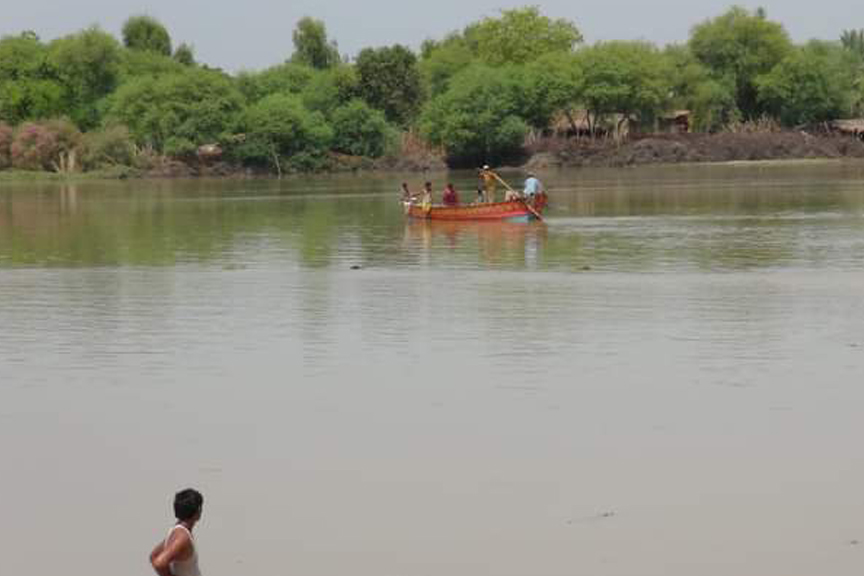
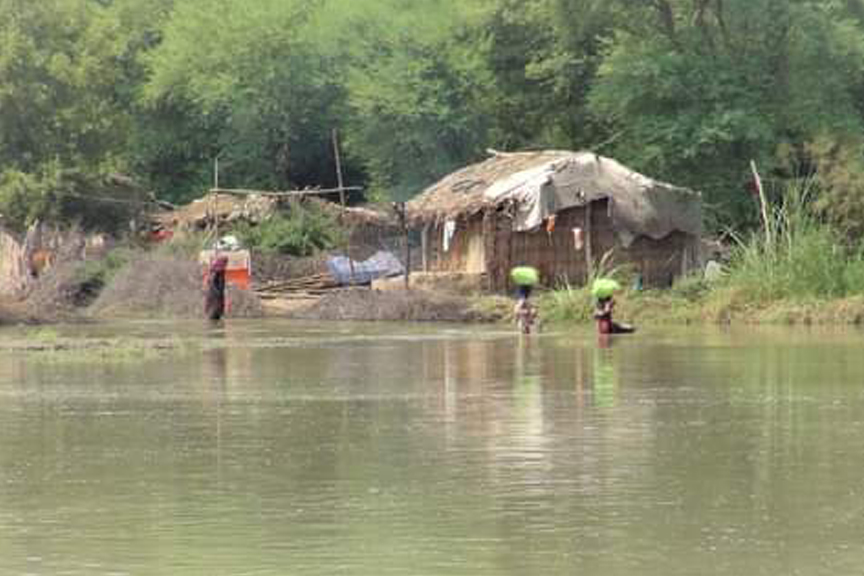
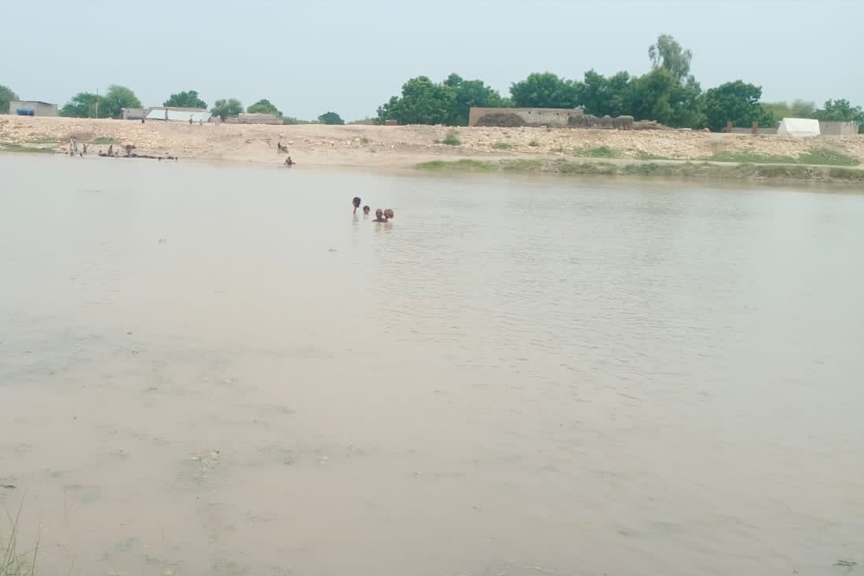
Community World Service Asia Response:
Community World Service Asia’s emergency team is in communication with relevant stakeholders, including local authorities, disaster management agencies, and expected affected communities to ensure effective coordination and a timely response. Our team is on the ground, closely monitoring the situation and will immediately start relief operations when and if required. While focusing on preparedness, CWSA has developed a robust emergency response plan that outlines specific roles, responsibilities, and procedures to ensure a coordinated and efficient flood response.
Contacts:
Shama Mall
Deputy Regional Director
Programs & Organisational Development
Email: shama.mall@communityworldservice.asia
Tele: 92-21-34390541-4
Palwashay Arbab
Head of Communication
Email: palwashay.arbab@communityworldservice.asia
Tele: +92-21-34390541
Sources:
www.ndma.gov.pk
www.arabnews.pk
https://pdma.gos.pk
https://reliefweb.int
www.nation.com.pk
1. Sukkur Barrage is a barrage on the River Indus near the city of Sukkur in the Sindh province of Pakistan. Sukkur Barrage is used to control water flow in the River Indus for the purposes of irrigation and flood control. Head Taunsa Barrage is a barrage on the River Indus in Taunsa district of Dera Ghazi Khan District, Punjab province of Pakistan. And also controls water flow in the River Indus for irrigation and flood control purposes.
2. Ghotki District is a district of the province of Sindh.
3. Also in Sindh
4. Riverine area
Flood Risks High as Water Reservoirs near Maximum Capacity
Photo credit: www.arabnews.com
On Saturday, June 29th, the National Disaster Management Authority (NDMA) warned of expected monsoon rains affecting parts of Pakistan within the next 48 to 72 hours. Meanwhile the Pakistan Meteorological Department (Flood Forecasting Division) reported that the River Indus at Guddu & Sukkur (in Sindh province) are at a medium flood level. Since the onset of monsoon season on June 25th, the death toll from rain-related incidents has reached 173, with casualties including 72 children and 32 women.
According to NDMA’s latest report, recent spells of rains have resulted in the complete destruction of 258 houses and partial damage to 1,227 houses nationwide. In Sindh province, six union councils in Dadu district have been affected by flooding, impacting an estimated 183 villages and 102, 268 individuals. Main roads connecting the district are left submerged in water, leading people to use alternate routes for access1.
Pakistan’s key water reservoirs in Mangla and Tarbela are approaching maximum conservation levels (MCL) amid monsoon rains. Moderate flash floods in River Kabul tributaries and hill torrents in DG Khan are also anticipated, while the NDMA warns of the Sukkur Barrage experiencing high flood levels by July 31st. Moreover, a latest Pakistan Meteorological Department report forecasts a possibility of thunderstorms with lightning and rainfall in Punjab, Khyber Pakhtunkhwa, Gilgit-Baltistan, Islamabad, and Azad Jammu and Kashmir in the coming days.
Last year’s monsoon season left about one-third of the country flooded, claiming nearly 1,700 lives and an estimated damage of over $30 billion.
Community World Service Asia Response:
Community World Service Asia’s emergency team is in communication with relevant stakeholders, including local authorities, disaster management agencies, and expected affected communities to ensure effective coordination and a timely response. Our team is closely monitoring the situation and will immediately start relief operations when and if required. While focusing on preparedness, CWSA has developed a robust emergency response plan that outlines specific roles, responsibilities, and procedures to ensure a coordinated and efficient flood response.
Contacts:
Shama Mall
Deputy Regional Director
Programs & Organizational Development
Email: shama.mall@communityworldservice.asia
Tele: 92-21-34390541-4
Palwashay Arbab
Head of Communication
Email: palwashay.arbab@communityworldservice.asia
Tele: +92-21-34390541
Sources:
www.ndma.gov.pk
www.arabnews.pk
https://pdma.gos.pk
https://reliefweb.int
1 This information was also shared by UNOCHA, Pakistan.




